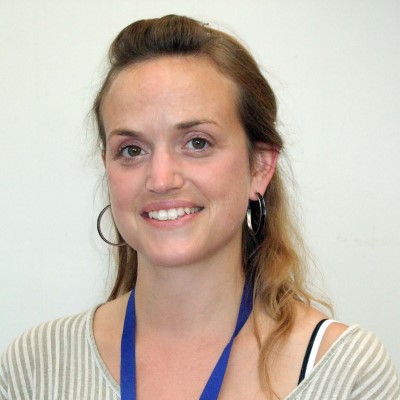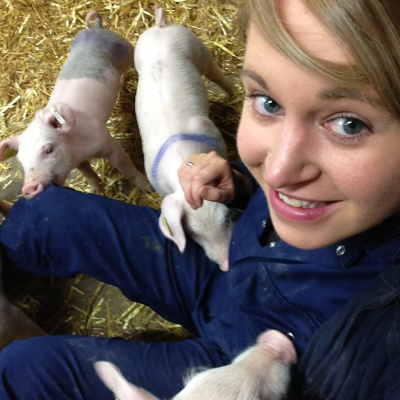CIEL | Meet the Scientist
Professor Alison Kingston-Smith
Director of Research

What project/s are you currently working on?
My main research interest is around plant stress responses, and the implications of those responses for quality food and feed. I am keen to understand how we can develop forage feeds that can deliver livestock production with lower environmental impact, particularly with a better ruminal nitrogen use profile. Methane grabs all the headlines but nitrogen loss is a significant environmental problem too and I have an ongoing interest in how composition and metabolism of ingested grass affects protein availability in the rumen. Together with colleagues at Cardiff University we have recently been studying how climate change might affect the digestibility of our current top forage varieties (BBSRC grant BB/R019185/1).
What capability are you drawing on to deliver the research?
As well as access to controlled environment (including the ability to grow under elevated CO2) and in vitro fermentation facilities, we have used the CIEL-supported Small Ruminant Research Platform at Aberystwyth University to measure the whole animal response to feeding miniature Southdown sheep with grass grown under different environmental conditions. The facility allowed us to measure N-balance as well as methane emission from individual animals. As we know from this summer, increased occurrence of drought is one of the most obvious signs that our climate is changing and it is important to understand how this will affect nutritional quality, or to put it another way, are we feeding what we think we are feeding? Given that new varieties take around 10 years to come to market we need to give our forage breeding partners as much notice as possible of traits that will become important.
What would be your ideal research project, assuming no barriers to resources?
I prefer my research to be at a fundamental level but to be directly relevant to society, so an ideal research project will be linked to food security in some way or other. I would lean towards something that is lab based in which we can use a variety of techniques to unpick molecular networks to identify intervention points for plant trait modification. It would have to be multidisciplinary and definitely with an imaging component. There are great opportunities to apply concepts in AI to biology for both prediction and hypothesis forming but there is nothing like looking at the real structures to understand if what you are proposing is physiologically realistic.
How did you arrive at doing what you do now?
Sshh! I am a plant scientist who has for many years hidden in plain sight in the animal science world!!
I began by taking a degree in Plant Science (Newcastle University) then a PhD which was jointly between Rothamsted Research and Imperial College, London. My PhD project on protein purification and Rubisco regulation played to my love of all things biochemistry, which was only solidified by taking what was supposed to be just a 3 year post-doc position at IGER in Aberystwyth looking at regulation of carbohydrate accumulation. A post-doc in oxidative stress in maize followed, and then a bit of a left field opportunity. My background in plant biochemistry was exactly what was needed for some lateral thinking across plant and ruminant sciences and that is what has kept me busy ever since. Well, that and taking on more leadership roles which has meant a gradual move out of the lab and into the office.
Can you explain a little about other work going on at Aberystwyth University which may also be of interest to our audience, such as work in insects?
I am the Aberystwyth lead for the NWE-Interreg Valusect project. This is a multi-partner, multi-country project working with SMEs to look at production and processing of food and animal feeds containing insect material. We are focussing on mealworms and house crickets as food ingredients and Black Soldier Fly larvae for animal feed. I feel it is important to explore all opportunities for food production and insects have great potential to help fill the protein gap.
Cricket kebab anyone?
Find out more about the research capability offered by the Small Ruminant Research Platform developed by Aberystwyth University and CIEL with the support of Innovate UK.







